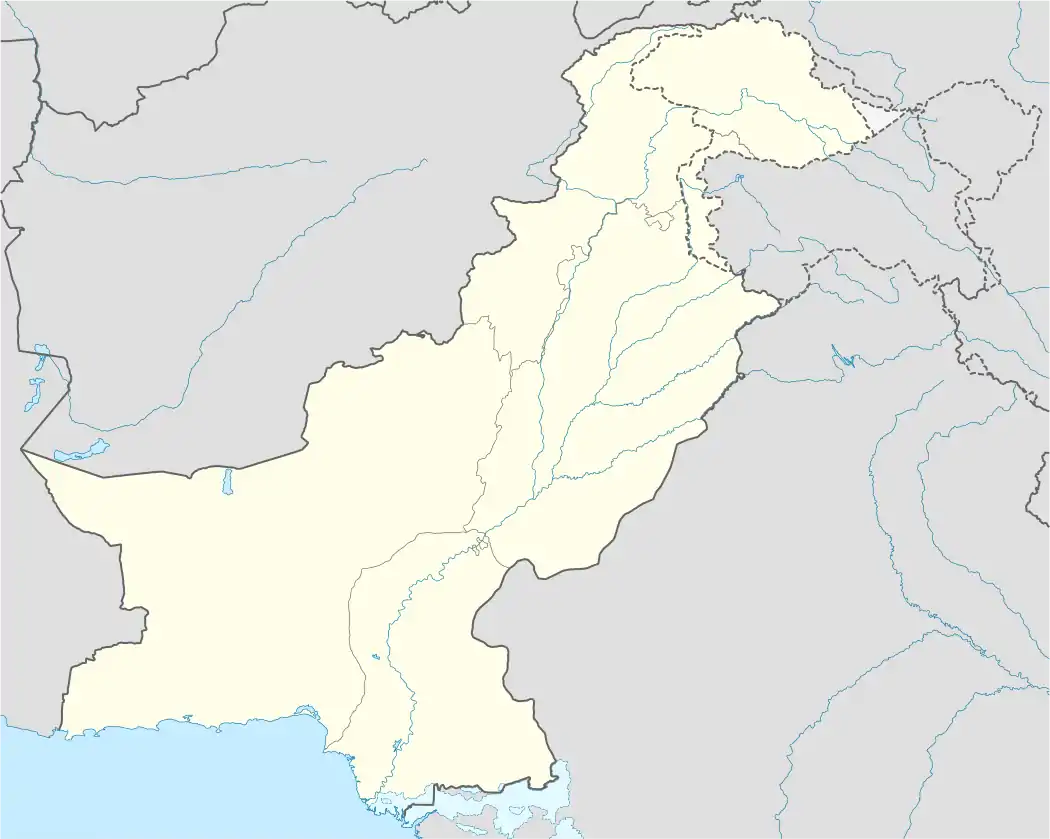Thoha Khalsa
Thoha Khalsa is a town in the Islamabad Capital Territory of Pakistan.[1]
Thoha Khalsa | |
|---|---|
 Thoha Khalsa | |
| Coordinates: 33.31°N 73.26°E | |
| Country | |
| Province | |
| Elevation | 700 m (2,300 ft) |
| Time zone | UTC+5 (PST) |
Geography
It is located at 33°31'0N 73°25'60E at an altitude of 700 metres (2299 feet) and lies south-east of the city of Islamabad.[2] It was part of Rawalpindi District and later Islamabad Capital Territory.
History
Thoha Khalsa (تھوہا خالصہ) is a village of Tehsil Kahuta District Rawalpindi Pakistan. The village is located in the South East of Rawalpindi city at the distance of 45 kilometers. The population is about 20,000 consisting different tribes named Janjua Rajput, Ghakhar, Mirza, Bhati and few others. The language used by the people is Pothohari and majority of the people is labour. Few of them are serving in different Government/Civil organizations of Pakistan, However about 4% are working in foreign countries. It is a historical village and was established by the Sikhs in early 18th Century during the Sikh rule over Punjab and Kashmir.
Amendments made by Zeeshan Ali (London)
Historical importance Avtar Singh Vahiria was a famous polemicist and scholar of Sikh community, He was born on 12 June 1848 at Thoha Khalsa. As a small boy, he learnt to recite the Sikh psalms from his mother and maternal uncle, Prem Singh. After he had learnt Gurmukhi his own village thoha khalsa, he moved towards Rawalpindi city for further education. Nihal Singh Saint also known as Pandit Nihal Singh, a Sanskrit scholar well versed in Vedanta as well as in gurbani. In 1870 Thakur Nihal Singh set out on a pilgrimage to various Hindu and Sikh holy places, where he preached the Sikh faith through kirtan. In 1874 he moved to Thoha Khalsa, where he established a dera called Dukh Bhanjani. He continued his kirtan recitals and missionary work till the end. Saint Attar Singh is said to have frequently attended these recitals at Thoha Khalsa. Baba Khem Singh Bedi once took him on a preaching tour to Thoha Khalsa.
